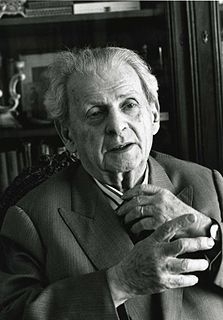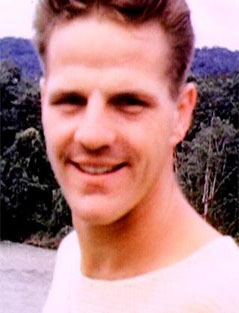A Quote by Emmanuel Levinas
If one could possess, grasp, and know the other, it would not be other.
Related Quotes
Maybe they would look at each other and feel some odd yearning, but neither of them would know why. They would want to stop, but they would be embarrassed, and neither would know what to say. They would go their separate ways. Who knew? Maybe that happened every day to people who'd once loved each other.
What a laugh, though. To think that one human being could ever really know another. You could get used to each other, get so habituated that you could speak their words right along with them, but you never know why other people said what they said or did what they did, because they never even know themselves. Nobody understands anybody.
Priests and physicians should never look one another in the face. They have no common ground, nor is there any to mediate betweenthem. When the one comes, the other goes. They could not come together without laughter, or a significant silence, for the one's profession is a satire on the other's, and either's success would be the other's failure.
As we continued to talk, going through the motions of getting to know each other, I realized that we already did know each other, as well as any two people could. We’d known each other for years, in the most intimate way possible. We’d connected on a purely mental level. I understood her, trusted her, and loved her as a dear friend. None of that had changed, or could be changed by anything as inconsequential as her gender, or skin color, or sexual orientation.
In my own experience I have found that the most extravagant dreams of boyhood have not surpassed the great experience of being in the Will of God, and I believe that nothing could be better. That is not to say that I do not want other things, and other ways of living, and other places to see, but in my right mind I know that my hopes and plans for myself could not be any better than He has arranged and fulfilled them. Thus may we all find it, and know the truth of the Word which says, He will be our guide even until death.
Could you not give me some sign, or tell me something about you that never changes, or some other way to know you, or thing to know you by?" — "No, Curdie: that would be to keep you from knowing me. You must know me in quite another way from that. It would not be the least use to you or me either if I were to make you know me in that way. It would be but to know the sign of me — not to know me myself.









































